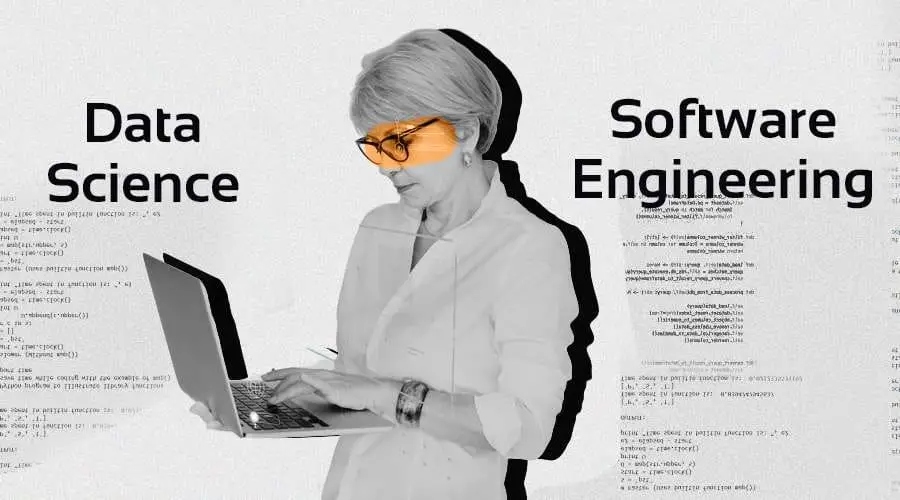This article offers insights and career guidance on data science and software engineer

The tech industry offers a plethora of exciting career opportunities, and two of the most in-demand professions are software engineering and data science. While both roles involve working with technology, they have distinct responsibilities, skill sets, and career paths. This comprehensive guide will delve into the intricacies of both professions, providing a clear understanding of their differences and helping you determine which career aligns with your interests and aspirations.
Software Engineering:
Software engineers are the architects of the digital world, responsible for designing, developing, and testing software applications. They possess a deep understanding of programming languages, software development methodologies, and data structures and algorithms. Software engineers play a pivotal role in shaping the user experience, ensuring that applications are functional, reliable, and secure.
Key Responsibilities of a Software Engineer:
1. Conceptualize and design software applications: Software engineers translate business requirements into technical specifications, creating blueprints for software solutions.
2. Develop and implement software code: Using programming languages like Java, Python, or C++, software engineers transform design specifications into functional software applications.
3. Test and debug software applications: Rigorous testing is essential to ensure software quality and identify potential bugs or defects. Software engineers meticulously test applications to maintain optimal performance.
4. Collaborate with team members: Software engineering is a collaborative endeavor, and engineers work closely with designers, project managers, and other stakeholders to ensure seamless project execution.
5. Stay updated with technology advancements: The tech landscape is constantly evolving, and software engineers must continuously learn and adapt to maintain their expertise.
Data Science:
Data scientists are the data detectives of the digital age, tasked with extracting meaningful insights from vast troves of data. They possess a blend of statistical, mathematical, and computer science skills, enabling them to analyze data using sophisticated algorithms and machine learning techniques. Data scientists provide actionable insights that drive business decisions, improve operational efficiency, and fuel innovation.
Key Responsibilities of a Data Scientist:
1. Collect and clean data: Data scientists gather data from various sources, ensuring its accuracy and completeness before proceeding with analysis.
2. Analyze data using statistical methods: Statistical techniques are employed to explore data patterns, trends, and correlations, revealing hidden insights.
3. Develop predictive models: Machine learning algorithms are utilized to build models that can predict future outcomes or identify potential risks.
4. Communicate findings to stakeholders: Data scientists must effectively communicate their findings to both technical and non-technical audiences, translating complex data into actionable insights.
5. Stay abreast of data science advancements: The field of data science is rapidly evolving, and data scientists must continuously learn new techniques and tools to maintain their edge.
Career Paths for Software Engineers and Data Scientists
Both software engineers and data scientists have diverse career paths, offering opportunities for advancement and specialization. Software engineers can progress to become senior software engineers, software architects, or technical leads. Data scientists can specialize in areas such as machine learning, natural language processing, or big data analytics, or they can advance to become data science managers or chief data scientists.
Choosing the Right Career Path: A Matter of Passion and Aptitudes
The choice between software engineering and data science depends on your individual interests and aptitudes. If you enjoy solving complex technical problems and building software applications, a career in software engineering might be a good fit. If you are fascinated by data, enjoy analyzing large datasets, and are interested in using data to solve real-world problems, a career in data science might be a better choice.